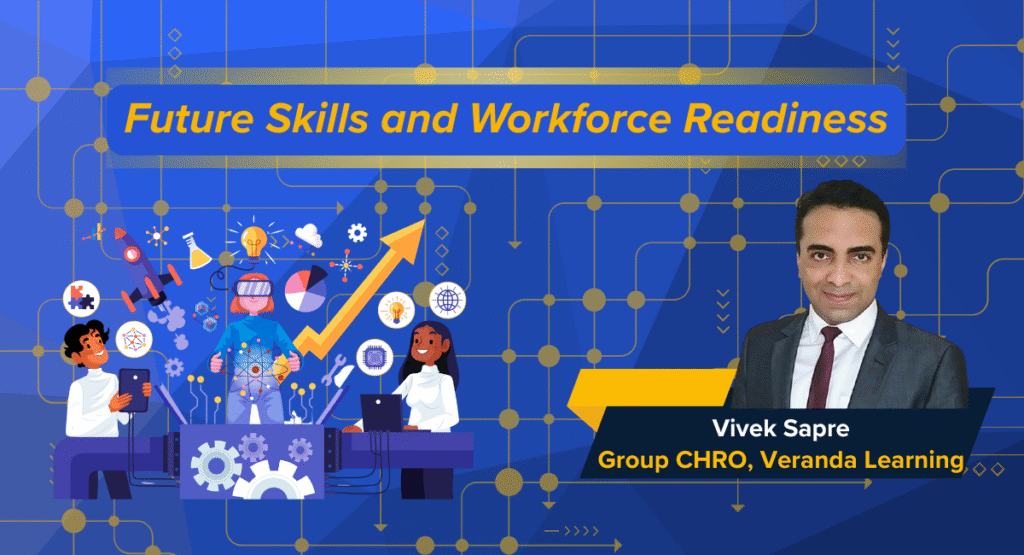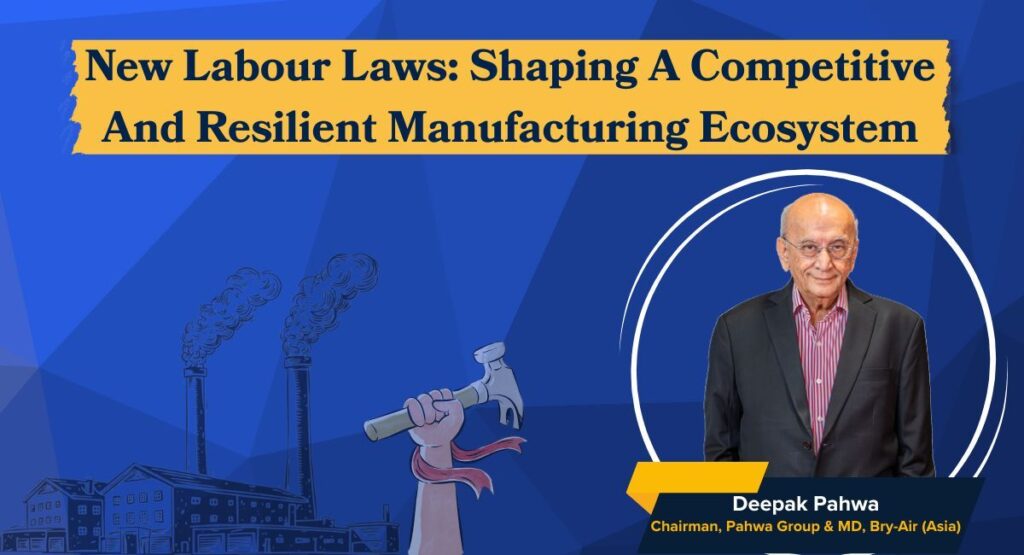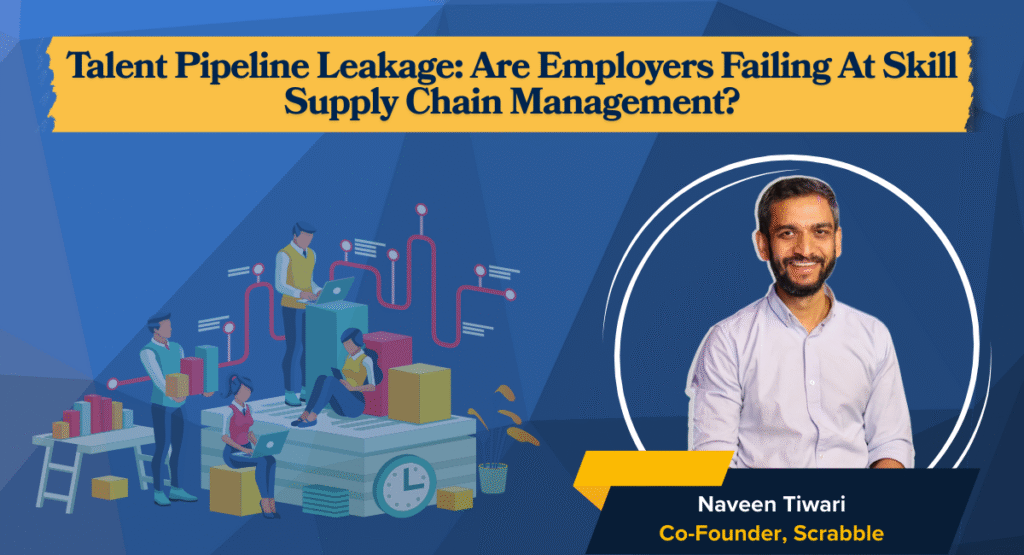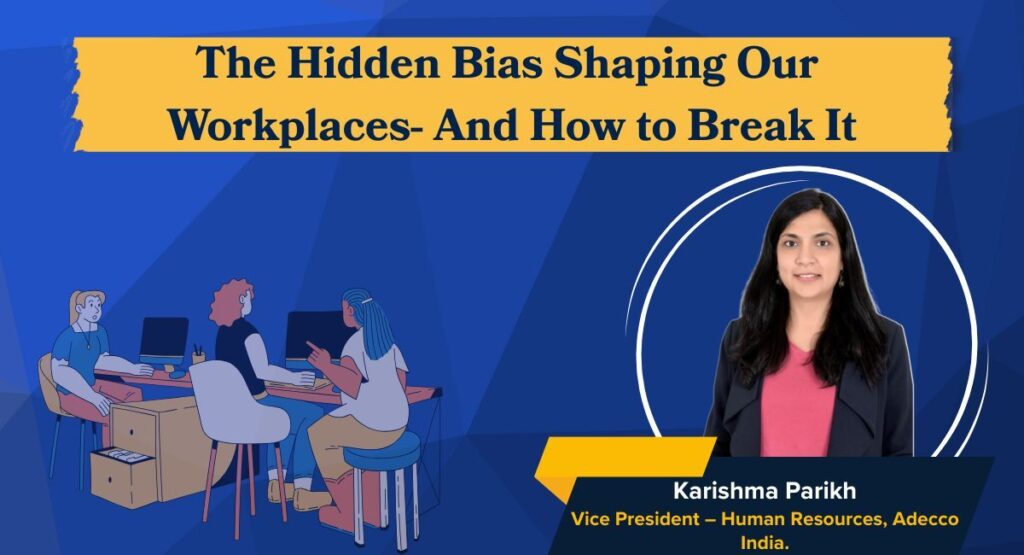Today’s world from the perspective of employees and working professionals is seeing an ever changing and evolving technological and politico-economic landscape like never before. On one end, great enablers and disruptor like AI are on the play, and on other economic relations between economies are highly sporadic, though in a much-integrated globalized world. This is making economies and sectors highly prone to disruptions difficult to prepare for. Employees and working professionals across sectors and experience levels wonder what lies in the future for them, and how to survive and thrive in the future workplace.
This article tries to answer this by exploring the key insights gained from the reports like World Economic Forum’s ‘Future of Jobs Report – 2025’ and its implications for the future skills and workforce readiness. Let us start with looking at some of the interesting statistics from PWCs ‘Workforce of the Future Report’ and surveys by AIHR.
- 74% of employees surveyed are ready to learn new skills or completely retrain in order to remain employable
- 70% consider using treatments to enhance their brain and body if this improves employment prospects in the future
- 60% think only a few people will have stable, long-term employment in the future
- 74% believe it’s their own responsibility to update their skills rather than relying on any employer
- 60% of organizations surveyed lack a clear plan for implementing AI Adoption
Above numbers capture the uncertainty and insecurity in the minds of employees and working professionals across sectors and experience levels. So, through this article, let us gain some awareness and understanding of what some of the skills are that would be much sought after and valued in the future. Also, both from the perspective of an employee and an employer, the key trends workplaces of the future are likely to follow.
Top 10 fastest growing skills by 2030
As per the Future of Jobs Report 2025 by the World Economic Forum, following are the top 10 fastest growing skills by 2030:
- AI and Big Data
- Networks and Cybersecurity
- Technological Literacy
- Creative Thinking
- Resilience, Flexibility and Agility
- Curiosity and Lifelong Learning
- Leadership and Social Influence
- Talent Management
- Analytical Thinking
- Environmental Stewardship
It’s worth noticing that other than first two skills in the list, which are functional skills (in IT domain), others are not functional skills but basically soft skills, personality traits, and openness-nimbleness to learn. Thus, irrespective of sector, domain and experience level, even if one lacks them today, one can and should build upon them!
7 Key Trends for Future Skills and Workforce Readiness
- Harnessing AI for productivity and growth: This being an omnipresent topic these days, not much detailing is required to be given here, but it’s worth noting that it would be important to prioritize skill development to harness AI and build trust in AI.
- Hybrid skills dominance: The future demands a fusion of technical prowess and soft skills, like a ‘hybrid’ skill. Beyond functional skills, individual’s adept at creativity, critical thinking, and emotional intelligence would be valued. This allrounder trait would not just be a desirable one, but a must-have for success.
- Emphasis on digital literacy: Digital literacy is already a universal necessity. Basic skills in navigating digital tools, understanding data analysis, and maintaining cybersecurity awareness would become more and more integral for every job role.
- Augmented Reality (AR) & Virtual Reality (VR) proficiency: Individuals with this proficiency would gain a competitive edge as industries would increasingly utilize these technologies for training and skill development.
- Focus on mental health: Future-ready individuals would need to possess resilience, stress management skills, and a commitment to foster a positive work environment. Organizations would have to increasingly implement well-being programs and support structures, recognizing that a mentally healthy workforce enhances productivity and contributes to a positive workplace.
- Gig economy preparedness: Job market would increasingly be characterized by short-term engagements, but with diverse professional opportunities. Long-term employment in single domain and work area would begin to get uncommon. Thus, from an employee and working professional’s perspective, preparing for the gig economy involves cultivating a diverse skill set. For example, one assignment coming one’s way would be for project management and next would be in the area of marketing! Like they say, do not put all your eggs in one basket, not having just one skill or domain area, but having versatile capabilities would become pertinent.
- Preparing for multiple futures: With the world becoming more unpredictable, planning for a single future is no longer advisable. Like many organizations do, for individuals as well, it would become quintessential to incorporate multiple future scenarios. Having backup professional skills and work areas as plan B and C in case one’s core professional skill loses demand in the job market would be a necessity.
HR: Catalyst for Change
HR would have to play a pivotal role in this change management for workforce readiness. Culture of learning, flexibility and employee care would have to be put into practice. All-important initiatives of re-skilling and up-skilling workforce to make them adept at AI, digital savvy, diverse at skills, excellent at soft skills and those who can leverage AR-VR would have to be led and driven by HR and L&D. Need for employees with hybrid skills would as well lead to rise of soft skills assessments, redefining the recruitment landscape and making it AI enabled.
L&D would have to undergo a profound shift towards continuous learning, with the rise of online and digital lifelong learning platforms, made highly personalized by AI. Immersive technologies like AR-VR enabled learning will redefine learning experiences, offering practical simulations and real-world applications. No more just fighter plane pilots would master the skills first on AR-VR simulations, from frontline sales to management roles, AR-VR driven simulation-based learning would steadily but surely become the way L&D works. HR would have to be the anchor of this transition of workforce.





